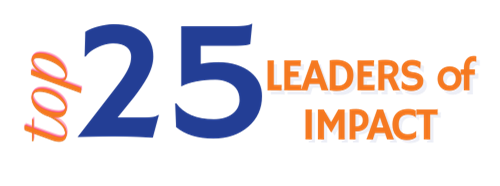By Dr. Suri Surinder
This conversation is based on one provocative premise, one radical realization. Leadership is a science.
Therefore, like all scientific constructs, it can be modeled methodically, assessed systematically, replicated reliably, and demonstrated universally. It is governed by a simple but powerful equation that can predict with accuracy and consistency how effective people are at leading.
And it is measurable for individuals as their Leadership Quotient (LQ), just as reliably and predictably as their Intelligence Quotient (IQ) or their Emotional Quotient (EQ).
I know that is tough to believe.
There are 16,000 leadership speeches on TED, 65,000 leadership articles on Ezine, and 85,000 leadership books on Amazon. Don’t even talk to me about Google or Bing. Any search there on leadership will yield millions of results.
Yes, there are many interpretations of this inherently fuzzy and amorphous topic. Yet, I am hopeful that by the end of this dialog, you also will be a believer in the Leadership Quotient and the science of leadership.
Let us start this conversation by asking ourselves three fundamental, sequential questions.
Question 1: When we think about the great leaders in our lives, what was it about them that caused us to follow them?
The best leaders I have encountered in my life are my parents. They never wrote a book. They never held high office. They never did any of the things that usually accompany greatness. Yet all the leaders I have ever looked up to and all the achievers I have ever admired have not had as much impact on me as those two solitary souls.
Here’s the scouting report on them:
Unlikely leaders. 2 of 14 siblings in their collective families. 4 feet 11 inches and 5 feet 2 inches short respectively. School teacher and government employee. Grew up in abject poverty. Grew old in abiding love. Led their only child to heights that he couldn’t even dream about without them.
You know the most amazing part of my parents’ leadership story? They led me. They led me from eight miles, 800 miles, and 8,000 miles away. They led me as a willful child, and as a strong-willed adult. They led me when they were alive, and they lead me today, when they walk with the angels. And they led me without coercion or coaxing, anger or fear, guilt or remorse.
I miss my mother and my father. I would have followed them, voluntarily and happily, to the ends of the earth.
What was the magic about my parents that made me listen to them when I didn’t have to? What did they do to elicit that level of follower-ship from an ornery, cussed, obstinate, strong-minded, independent-thinking iconoclast like me?
The answer is the ultimate secret of great leaders. It is the one thing that all of them do masterfully. All the answers we have gotten every time we have asked this question of folks like you converge on this one thing.
Not 3, or 5, or 10, or 21.
One.
Great leaders have figured out how to get others to WANT to follow them.
Why is this important?
Because people are capricious, whimsical, mutable, brilliant, skeptical, headstrong, intransigent, unpredictable, arbitrary, independent, determined, obdurate creatures. They are, without exaggeration or hyperbole, the most complicated, confounding, conflicted life-forms on this planet.
Kinda like you and me.
Leadership is an ultimate, magnificent, beautiful act of free will. Not on the part of those who lead, but on the part of those who follow. It is a gift given voluntarily by a discerning many to a privileged few. The awesome, magical secret of great leaders is that people choose to be led by them.
Followers pick leaders, more so than the other way around. Free will and independent thinking makes it impossible to force anyone to follow through the mandates of an organization chart, though many leaders try to do so. Managers may be appointed to their positions by people upstream from them, but leaders are elected to their roles by people downstream from them.
Remember this. Every time I have forgotten, I have failed.
So, my parents didn’t even try to lead me. They knew the futility of that endeavor. Instead, they focused, instinctively and unerringly, on engendering in me a voluntary desire to follow them.
Question 2: How do the great ones get others to want to follow them?
When we asked this of folks much like yourselves, here is what they told us.
- They said that they picked the leaders they chose to follow through a subconscious, instinctive process rather than a conscious, methodical one.
- They said that the process was perpetually instantaneous and permanently temporary, and that it happened every day, every week, every month, every year, based on the leader’s actions.
- They said that it was the ultimate secret ballot. No one ever told their leaders whether they had won or lost the battle for their hearts and minds on a given day. But when the battle was won, there was commitment, and when it was lost, there was compliance.
- And finally, they said that victory in this unrelenting election happened not through the position the leaders had, or the institution they represented, or the wealth they possessed, or the personality they projected, but through three specific currencies that were earned, and three specific assets that were built.
Interestingly, my parents earned those same three currencies from me and built those same three assets with me.
- Firstly, I realized that they were smarter than me about life. While they were poor in financial terms, they were rich in superior, relevant RESOURCES. That asset bought them the currency of RESPECT from me.
- Secondly, I knew without doubt or dilemma, that they only wanted what was best for me, because I had dependable, caring RELATIONSHIPS with them. That asset bought them the currency of TRUST from me.
- Thirdly, every time I listened to them and acted on what they told me, I got the distinctive, consistent RESULTS that I wanted. That asset earned them the currency of CREDIBILITY from me.
Think about that for a bit.
- If every time we followed a leader, we got the results we wanted, wouldn’t it make sense to follow them again?
- If every time we interacted with a leader, we believed that they had our best interests at heart, wouldn’t we feel like following their lead?
- And if every time we heard a leader, they seemed to have in-depth domain expertise, wouldn’t we respect their judgment enough to act on what we heard?
I suspect your answers to the above questions are Yes, Yes, and Yes.
Our studies show that great leaders consistently earn the currencies of Credibility, Trust, and Respect with most constituencies most of the time. And they earn these currencies by building the assets of Results, Relationships, and Resources.
Question 3: How are the currencies and assets of leadership generated?
Therein lies the mathematics of LQ.
- Resources are acquired by investing in Competence – in the industry, company, organization, function, job, competition, customers, process, platform, and people. By becoming a smart person about the things that matter. Most people call that Intelligence Quotient or IQ, and it is all about the Head. Think of it as thought leadership.
- Relationships are built by investing in Character – in honesty, reliability, caring, alignment, balance, temperament, teamwork, authenticity, resilience, compromise. By becoming a better person on the qualities that count. Most people call that Emotional Quotient or EQ, and it is all about the Heart. Think of it as people leadership.
- Results are delivered by investing in Capabilities – in envisioning, planning, developing, motivating, communicating, coaching, decision making, collaborating, negotiating, managing. By becoming an effective person on the actions that are to be accomplished. We call that Execution Quotient or XQ, and it is all about the Hands. Think of it as results leadership.
There you have it. The mathematics of leadership straight from the heads, hearts, and hands of those who really count – the unnamed many who choose to follow the privileged few on whom the mantle of leadership is bestowed. Sizable specifically, improvable incrementally.
The formula for finishing first in the fight for followers: LQ = IQ + EQ + XQ
Turns out, my parents were high LQ leaders. Just took me a long time to figure out the secret of their magical hold on me.
- It wasn’t abject fear of tough people that made me listen to my parents. It was a rational salute to smart people. They were high IQ thought leaders.
- It wasn’t affectionate liking for nice people that made me listen to my parents. It was an emotional bond with good people. They were high EQ people leaders.
- It wasn’t filial devotion to well-intentioned people that made me listen to my parents. It was the demonstrated success of effective people. They were high XQ results leaders.
After 58 years on this planet and 33 years in leadership roles, my realization has been this, “The hands that rock the cradle rule the world.”
What made me a follower of my parents works for leaders in any context, personal or professional, corporate or non-profit, sales or customer service, academic or consulting.
Here’s the best part.
IQ, EQ, XQ are measurable through calibrated and validated instruments. Because its component parts are measurable, we can actually put a number on LQ for individuals. Not only that, we can pinpoint the drivers of those scores with precision, identify the specific constituencies that need focus, and determine the actions that will improve leadership effectiveness.
And, with the ability to measure pre- and post-intervention LQ scores, it is now possible to measure the success of those actions. So you see, the science of leadership isn’t complicated at all. But then the most profound things in life are simple.
Earn Credibility, Trust & Respect. Be smart, be good, be effective. Build your IQ, your EQ, your XQ. Lead with your head, your heart, and your hands. Go for assignments that develop your thought leadership, people leadership, and results leadership.
Do it. You’ll like it. Then, call me if you want to measure your Leadership Quotient, and that of your team. You just might be surprised.
Dr. Suri Surinder, is co-Founder & CEO of CTR Factor, the CTR Factor Leadership Institute, QuantumFLY & MyRequest-US.










